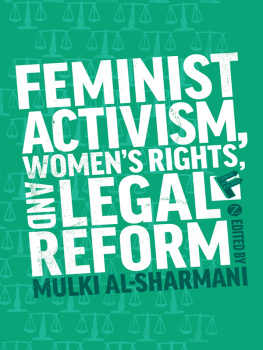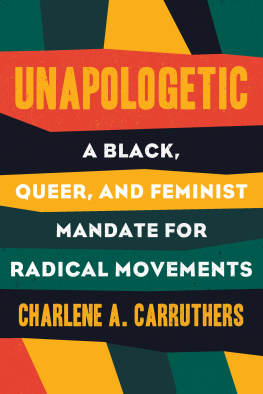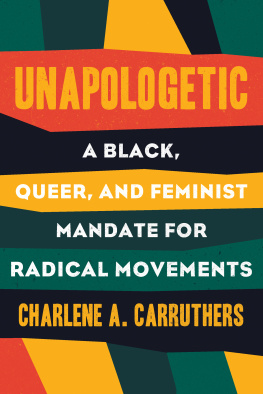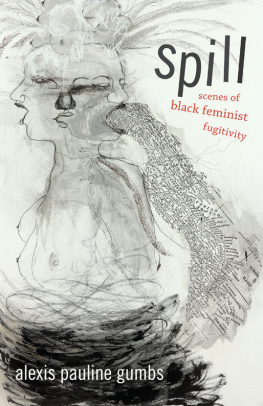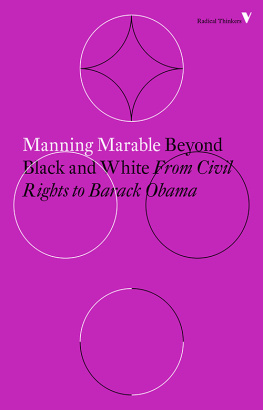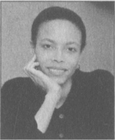Acknowledgments
T his book is the product of eight years of research and writing about race and reproductive freedom. I have countless people to thank for their comments as I have presented my ideas at workshops, conferences, and seminars over that period. Rutgers University School of Law, and Deans Peter Simmons and Roger Abrams, provided a wonderfully supportive environment for my work. Yale Law Schools invitation to deliver the 1993 Thomas Lecture, which I entitled Race and Reproduction, provided the spark. My fellowship at Harvard Universitys Program in Ethics and the Professions, directed by Dennis Thompson, gave me the opportunity to start writing this book. Martha Finemans Feminism and Legal Theory Workshops at Columbia Law School and the Northeast Corridor of Black Women Law Professors were especially helpful.
I am indebted to numerous scholars who read and commented on papers that contributed to this book, including Taunya Banks, Joan Callahan, Norman Cantor, Rebecca Dresser, Nancy Ehrenreich, Judith Greenberg, Dwight Greene, Joel Handler, Kenneth Karst, Howard Latin, Nadine Taub, George Thomas, and Iris Marion Young. My thinking on welfare benefitted from conversations with Marion Smiley and Lucie White. Anita Allen, Regina Austin, Derrick Bell, Jerome Culp, Peggy Davis, Martha Fineman, Martha Minow, Jim Pope, and Susan Wolf deserve special recognition for their inspiration and support. Peggy Davis and Susan Wolf also generously commented on the final manuscript and improved it immensely.
One of the many privileges of being a law professor is having the benefit of research assistants. I would like to thank the following Rutgers Law School graduates whose invaluable research contributed to this book: Anita Brown, Decanda Faulk, Marianne Hatcher, Donna Jackson, Nina Loewenstein, Bronwen Mantlo, Elizabeth Marshall, Frederick Morton, Eric Pennington, Deborah Reid, Mavel Ruiz, Sandra Satchell, Valenicia Smith, Lysette Toro, Claudia Wernick, and Andrea Williams. I am also grateful to Simone Sandy, who provided research and friendship during my fellowship year at the Program in Ethics and the Professions. A team of Rutgers students (Elliot Monteverde-Torres, Melanie Routh, Margaret Hall, Kevin Kreisler, Theodora McCormick, and Eileen OToole) helped in the final stages of writing this book. Secretaries Bobbie Leach at Rutgers and Helen Hawkins at Harvard also provided important assistance.
I greatly appreciate the contributions of several organizations that generously sent me court papers, newsletters, and other information: ACLU Reproductive Freedom and Womens Rights Projects, ACLU of Chicago, Center for Reproductive Law and Policy, National Black Womens Health Project, National Womens Health Network, NOW Legal Defense and Education Fund, Planned Parenthood Federation, and Puerto Rican Legal Defense and Education Fund. I am also grateful to Wendy Chavkin, Sherrill Cohen, Deb Ellis, Lori Valencia Greene, Alexandra Halkin, Mary Faith Marshall, Lynn Paltrow, Nina Perales, Julia Scott, and Judith Scully for discussions and interviews.
I am indebted to several people who helped me turn my years of research into a book. Jane Alexander encouraged me to take the book to a broader audience and suggested my agent and publisher. My agent, Kathy Robbins, and my editor at Pantheon, Erroll McDonald, believed in this project from the start and gave me sound advice. Marya Vant Hul at Beacon Press and Bruce Nichols at The Free Press also encouraged me early on.
I could not have completed this book without the loving embrace of friends and family, who discussed my ideas, endured my preoccupation with writing, and watched my children. I am deeply grateful to Brenda and Alva Drakes, Michael Hanchard, Sheryl Jackson, Lela Jackson, Debra and Major Jennings, Sonya Smith, Nancy Tart, and Pamela Tyler for all their support. I appreciate the prayers of Rev. Michael Harriot and my friends at St. Marks United Methodist Church. My parents, sisters, husband, and children have blessed me with the most incredible love and commitment.
Some of the material in this book previously appeared in the following law review articles: Punishing Drug Addicts Who Have Babies: Women of Color, Equality, and the Right of Privacy, Harvard Law Review 104 (1991), p. 1419; The Genetic Tie, University of Chicago Law Review 62 (1995), p. 209; Irrationality and Sacrifice in the Welfare Reform Consensus, Virginia Law Review 81 (1995), p. 2607; Welfare and the Problem of Black Citizenship, Yale Law Journal 105 (1996), p. 1563; and Race and the New Reproduction, Hastings Law Journal 47 (1996), p. 935.
DOROTHY ROBERTS
KILLING THE BLACK BODY
Dorothy Roberts graduated from Yale College and Harvard Law School. The author of more than forty articles and essays that have appeared in, among other publications, the Harvard Law Review and The New York Times, she is a professor at Northwestern University School of Law, where she teaches courses in criminal and family law and civil liberties. She lives in Evanston, Illinois.
1

REPRODUCTION IN BONDAGE
W hen Rose Williams was sixteen years old, her master sent her to live in a cabin with a male slave named Rufus. It did not matter that Rose disliked Rufus cause he a bully. At first Rose thought that her role was just to perform household chores for Rufus and a few other slaves. But she learned the true nature of her assignment when Rufus crawled into her bunk one night: I says, What you means, you fool nigger? He say for me to hush de mouth. Dis my bunk, too, he say. When Rose fended off Rufuss sexual advances with a poker, she was reported to Master Hawkins. Hawkins made it clear that she had no choice in the matter:
De nex day de massa call me and tell me, Woman, Is pay big money for you, and Is done dat for de cause I wants yous to raise me chillens. Is put you to live with Rufus for dat purpose. Now, if you doesnt want whippin at de stake, yous do what I wants.
Rose reluctantly acceded to her masters demands:
I thinks bout massa buyin me offen de block and savin me from bein seprated from my folks and bout bein whipped at de stake. Dere it am. What am Is to do? So I cides to do as de massa wish and so I yields.
The story of control of Black reproduction begins with the experiences of slave women like Rose Williams. Black procreation helped to sustain slavery, giving slave masters an economic incentive to govern Black womens reproductive lives. Slave womens childbearing replenished the enslaved labor force: Black women bore children who belonged to the slaveowner from the moment of their conception. This feature of slavery made control of reproduction a central aspect of whites subjugation of African people in America. It marked Black women from the beginning as objects whose decisions about reproduction should be subject to social regulation rather than to their own will.
For slave women, procreation had little to do with liberty. To the contrary, Black womens childbearing in bondage was largely a product of oppression rather than an expression of self-definition and personhood. As Henry Louis Gates, Jr., writes about the autobiography of a slave named Harriet Jacobs, it charts in vivid detail precisely how the shape of her life and the choices she makes are defined by her reduction to a sexual object, an object to be raped, bred, or abused. Even when whites did not interfere in reproduction so directly, this aspect of slave womens lives was dictated by their masters economic stake in their labor. The brutal domination of slave womens procreation laid the foundation for centuries of reproductive regulation that continues today.


